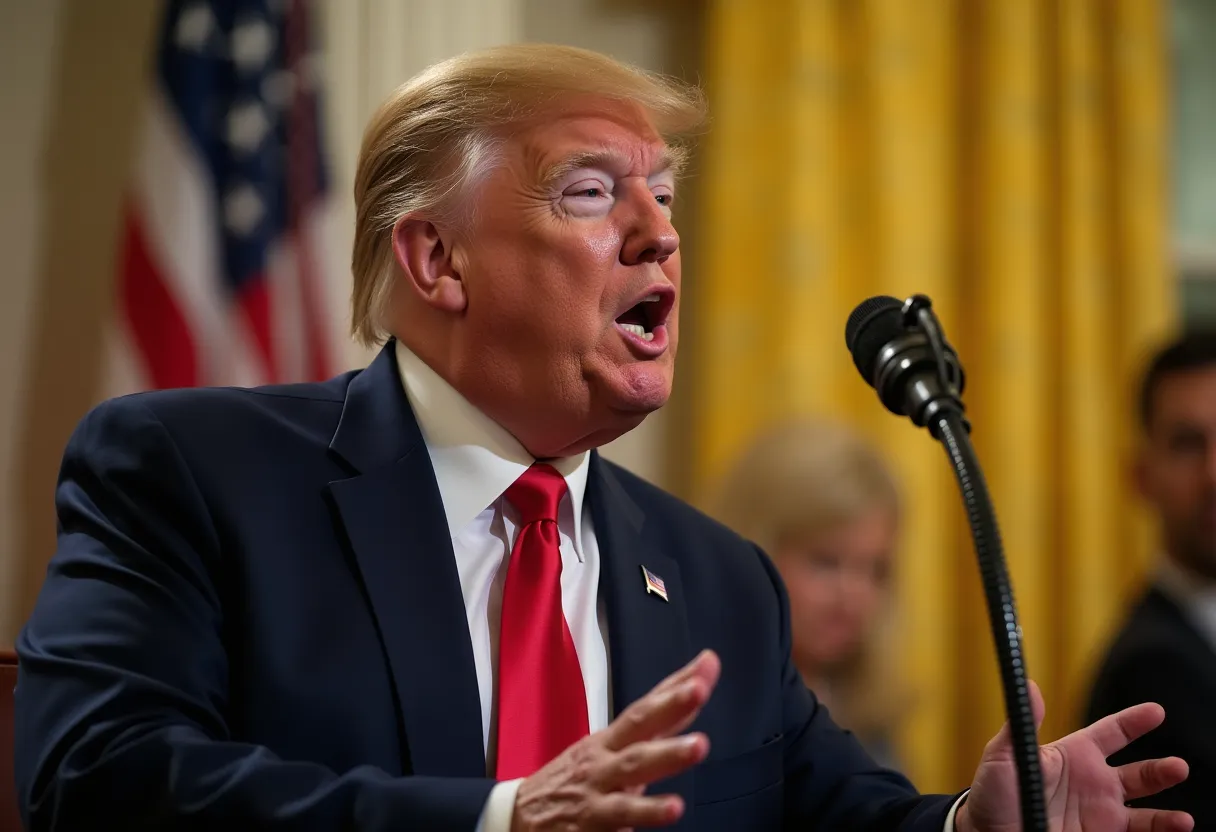Understanding the Dynamics: Trump’s Challenge to the Fed’s Lisa Cook
In recent developments, former President Donald Trump has initiated a significant challenge against the Federal Reserve’s board member, Lisa Cook. This move raises critical questions about the stability of the Bitcoin reserve that Trump has advocated for during his political career. As the cryptocurrency market continues to evolve, it is essential to delve into the implications of this political maneuver and its potential effects on Bitcoin’s future.
The Role of the Federal Reserve and Bitcoin
The Federal Reserve plays a pivotal role in the U.S. economy, influencing inflation rates, employment levels, and overall economic stability. With its monetary policies, the Fed dictates how money flows through the economy. In contrast, Bitcoin operates independently of traditional financial institutions, offering a decentralized alternative to fiat currency.
However, the interplay between government actions and cryptocurrency can create ripple effects that impact market dynamics. Trump’s recent actions against Cook signify a potential shift in how the government interacts with the cryptocurrency landscape, specifically Bitcoin.
Who is Lisa Cook?
Lisa Cook is a prominent economist and a member of the Federal Reserve Board of Governors. Known for her expertise in economic policy and financial systems, Cook’s contributions have been significant in shaping monetary policy. She has consistently advocated for policies that promote economic growth and stability, especially for underserved communities.
Her stance on digital currencies, including Bitcoin, has also been under scrutiny. As a member of the Fed, Cook’s perspective could influence regulatory frameworks around cryptocurrencies, potentially impacting their adoption and integration into the traditional financial system.
The Implications of Trump’s Challenge
Trump’s challenge to Cook raises questions about the future of monetary policy in relation to cryptocurrencies. The implications of this political drama can be categorized into several key areas:
Bitcoin’s Reserve Stability
One of the core appeals of Bitcoin is its limited supply, which is capped at 21 million coins. This scarcity, combined with increasing demand, has positioned Bitcoin as a digital store of value. However, external factors, including regulatory changes and political pressures, can influence market sentiment and, consequently, Bitcoin’s stability.
Trump’s challenge to the Federal Reserve could lead to a more fragmented approach to cryptocurrency regulation, undermining the confidence that investors have in Bitcoin as a stable asset. Should regulatory measures become more stringent, it may deter potential investors and create a climate of fear, leading to increased volatility.
The Future of Bitcoin Amidst Political Turbulence
As we look ahead, the future of Bitcoin remains uncertain, especially in light of political developments. The cryptocurrency community is known for its resilience, but sustained political challenges could test its mettle.
Here are some potential scenarios that could unfold:
Conclusion: Navigating the Uncertain Waters of Cryptocurrency
Trump’s move against the Federal Reserve’s Lisa Cook presents a complex scenario for Bitcoin and the broader cryptocurrency market. As political tensions rise, it is crucial for investors, advocates, and stakeholders to remain informed and adaptable.
The landscape for Bitcoin is continually evolving, influenced by a myriad of factors, including regulatory decisions, market trends, and political dynamics. Staying ahead in this unpredictable environment requires vigilance and an understanding of the underlying forces at play.
In summary, the interplay between politics and cryptocurrency is intricate and multifaceted. As we navigate these uncertain waters, the resilience and adaptability of the Bitcoin community will be paramount in ensuring the stability and growth of this revolutionary digital asset.






